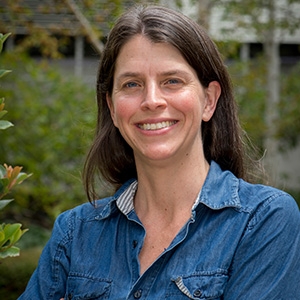Understanding the past to change the future
Research news
More than century ago, a group of Aboriginal people from the Coranderrk Aboriginal Reserve fought the Board for the Protection of Aborigines for the right to justice and self-determination.
Aboriginal people being evicted from their land was nothing new, but the 1881 Parliamentary Coranderrk Inquiry was the first and only time in the 1800s when an official commission addressed Aboriginals people’s arguments and one of the few times when Aboriginal witnesses were able to give evidence themselves about what mattered to them.
It is a significant moment in history and one that can be used in 2016 to explore how structural injustice and racism can be prevented.
“The Coranderrk story is not unique. Many Aboriginal communities in Victoria have a story like this,” said Deakin University historian Joanna Cruikshank.
“There were always Aboriginal people who fought for their rights and sometimes white people who supported them; it’s just that Coranderrk is very well documented.
“But there is a whole part of our history that is not known, although Aboriginal people have always been very aware of it. So where you do have these stories, it’s important to tell them because research has shown that a better knowledge of our history can decrease racism among Australians.”
Joanna hoped her current research would contribute to a more detailed understanding of what works and what doesn’t in presenting this history to school students, as research also showed that many Australian children experience racist abuse and bullying at school.
“We know that experiencing racism can have negative health issues on children, especially their mental health,” she said.
“However, I think the fact that school is where children are most likely to experience racism means it’s also a great place to fight it and educate young people against it.
“As a historian, I’ve seen for myself that a better understanding of our shared history can open young people’s eyes to racism and help them to stand up against it.”
To support her research, Joanna has launched a crowdfunding campaign to bring performances of “Corranderk: We Will Show the Country,” a theatre production composed entirely from extracts of the 1881 parliamentary enquiry, to local high school students.
The play, by Giordano Nanni and Andrea James and presented by Melbourne’s La Mama Theatre company, “brings to life the racist structures and individuals that oppressed Aboriginal people and the courage of those who fought against them.”
Greg Fryer, an Aboriginal actor who has been performing in the play since it was first developed, says when the performance was first suggested to him he wondered “how you could breathe life into something so stale and dry, but the ability to take people back into that time and place has worked amazingly”.
“The cast call it, 'the show that will never die',” he said. “It will be wonderful if kids learn more about Australian history through this, because the past determines the future.”
The performances would be shown to high school students as part of an educational program Deakin runs with local schools, Joanna said.
“My research work will take place after the performances, talking with the students about how historical knowledge informs their understanding of concepts like race and how history has shaped the way that different cultural groups are treated in Australia today.”
Joanna said she would work with experienced anti-racism researchers to evaluate how the students responded to the performance and would use the results to develop models for history education in anti-racist initiatives.
“There are already studies showing that a better understanding of historical and structural injustice does decrease racism against Aboriginal people by non-Aboriginal adults. So we have some evidence to suggest it works, but how can it work with younger people?
“Even sympathetic portrayals of Aboriginal people can be stereotypical, such as seeing Aboriginal people as passive victims. However, in this performance you see Aboriginal people as activists, standing up for their rights and calling out injustice.
“We’re trying to make clear connections between what happened in the past and how it continues to affect the present. Racism is an historical legacy. We don’t have to continue it.”
Through her crowdfunding campaign Joanna is hoping to fund up to three performances of “Coranderrk: We Will Show the Country” and the related research. The campaign runs until the start of June at
Share this story
 Dr Joanna Cruickshank Senior Lecturer In History, Faculty of Arts and Education.
Dr Joanna Cruickshank Senior Lecturer In History, Faculty of Arts and Education.
